No one can deny that music is the beating heart of Disney animated films. Ever since Disney’s first feature film, Snow White and the Seven Dwarfs, music has been incorporated into their films to reveal characters’ inner thoughts, propel storylines forward, and — ultimately — win our hearts over with memorable impactful lyricism and melodies. It is no wonder then that for Walt Disney Animation Studios’ 100th anniversary film, Wish, that new blood was brought in to incorporate a new musical style into the Disney mix.
Stepping into the shoes of legendary greats such as Alan Menken, Howard Ashman, and — in recent years — Kristen Anderson-Lopez, Robert Lopez, and Lin-Manuel Miranda is singer-songwriter Julia Michaels. Ironically, Demi Lovato’s interpretation of Kristen Anderson-Lopez’s and Robert Lopez’s song, “Let It Go,” was Michaels’ professional foothold into the Disney musical realm. Tasked with creating songs for a feature length film, Michaels’ songwriting process came to significantly influence the creative writing process for a lot of what audiences will see in Wish.
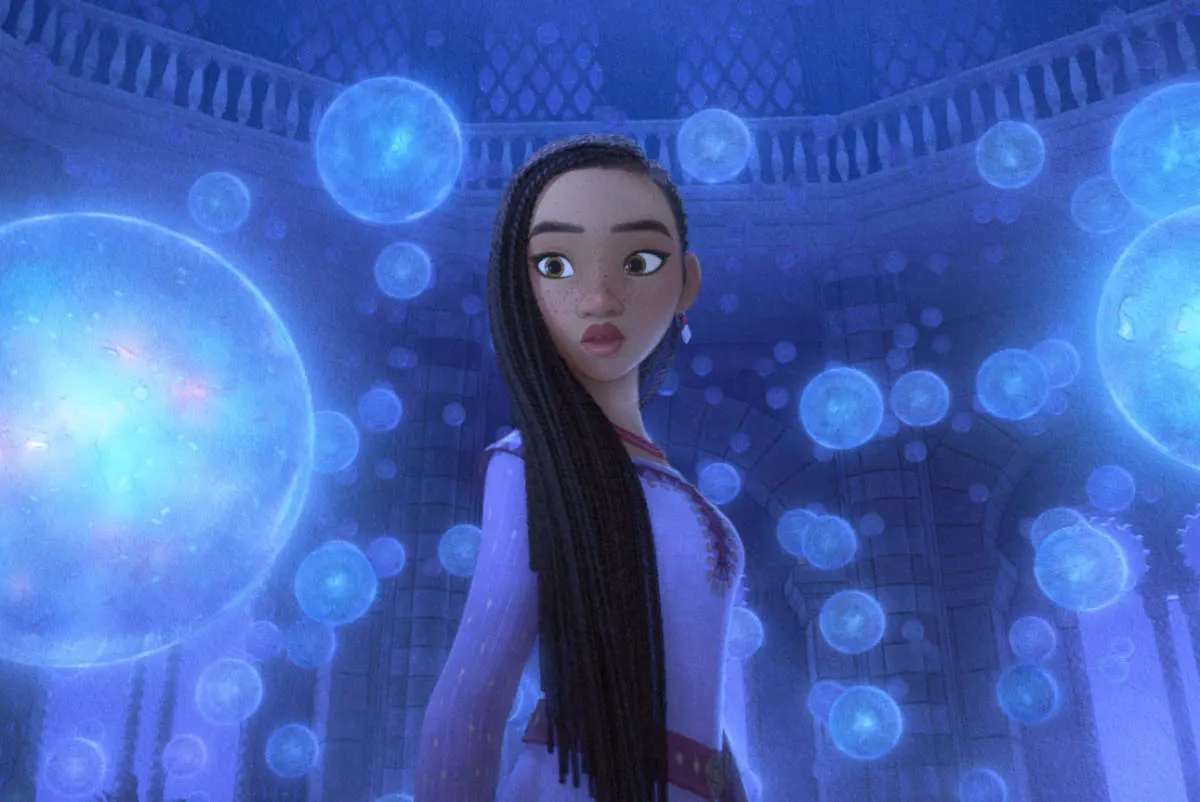
Vital Thrills got to learn more about the Wish movie and the process behind creating the next batch of musical hits and the music’s influence on the story with writer, executive producer, and animation chief Creative Officer Jennifer Lee, co-director Chris Buck, co-director Fawn Veerasunthorn, producer Peter Del Vecho, producer Juan Pablo Reyes Lancaster Jones, and composer Julia Michaels.
In Wish, viewers are taken to the kingdom of Rosas where the promise of having a wish granted brings visitors in from far and wide. Located in the Iberian Peninsula, there’s a fusion of culture and influence in Rosas, but all things revolve around King Magnifico (Chris Pine).
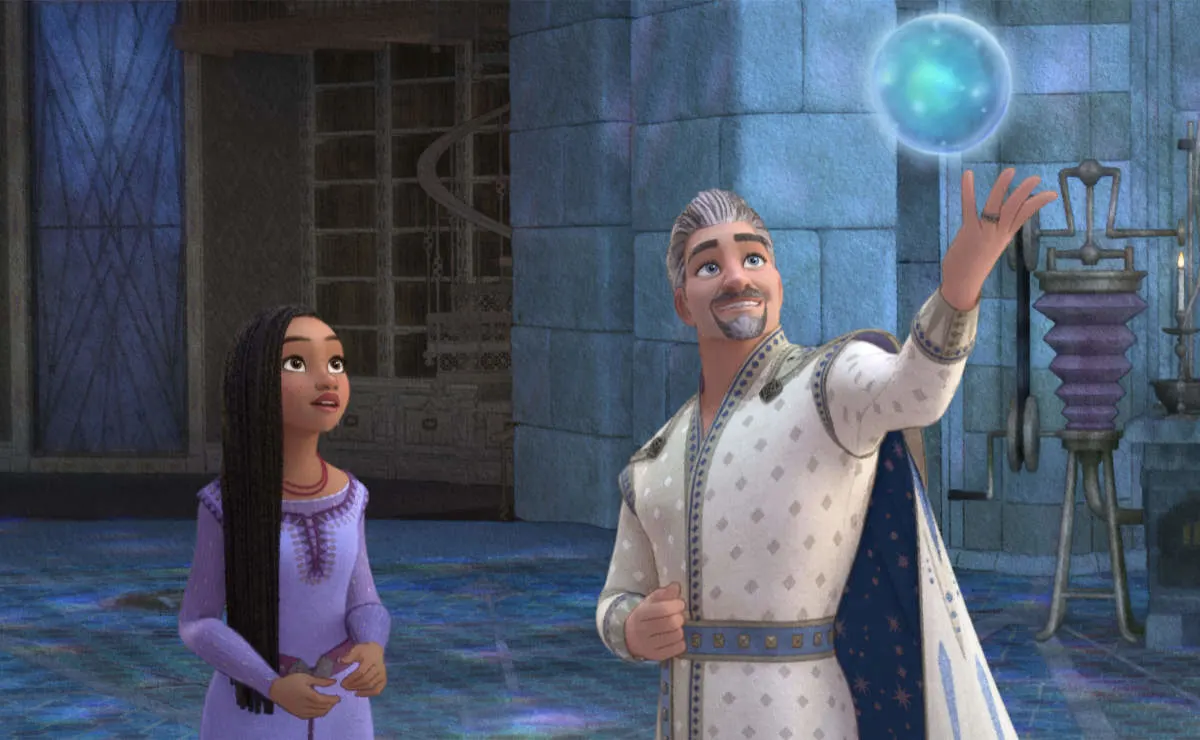
It is his influence and power that originally draws our heroine Asha (Ariana DeBose) to want to serve as his apprentice. Mainly, to see that her Sabino’s (Victor Garber) wish will finally be granted for his 100th birthday. Things don’t go according to plan. But because of this, one emotionally fraught night and a wish upon a star brings Asha and the kingdom of Rosas face to face with a powerful cosmic energy that will change their lives forever.
After writing a song for the end credits of Ralph Breaks the Internet, Michaels received a call during the pandemic inviting her to work with the team crafting the music for Wish. “The first song I wrote for the film was ‘This Wish,’” she explained. “They gave me a paragraph of the film of the plot, and it was basically about this young woman that lives in a magical town that finds out that this king isn’t all he seems to be. It’s her very selfless journey to get back the wishes of the people. I just loved the idea of this very normal, awkward, silly young woman becoming this brave courageous person. So, ‘This Wish’ was born.”
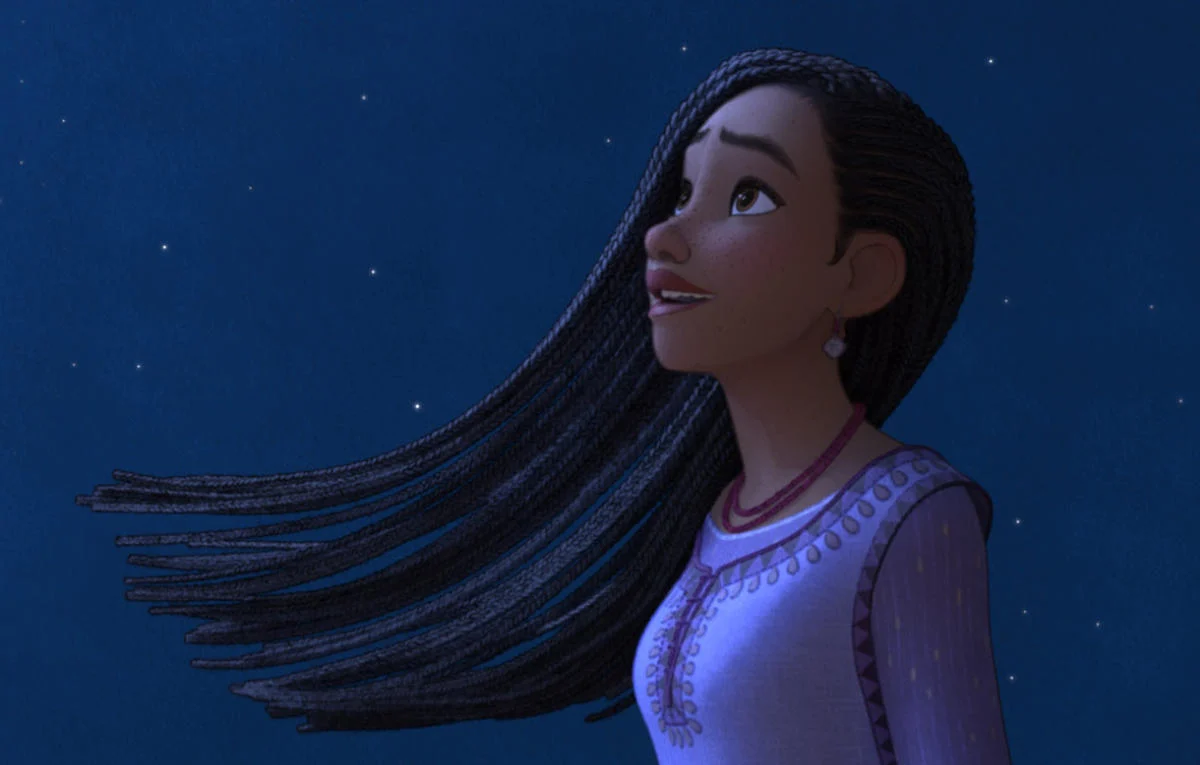
The creation of “This Wish” coincided with the first character created for the film, Asha. As Jennifer Lee would explain, the team knew a lot about Asha before they even started writing the script. With just a blurb in hand, they used “This Wish” as a jumping off point into the story of the film.
This process of workshopping characters through songs would be a common one in the production, with Michaels’ contributions broadening and expanding on characters in ways Lee, Chris Buck, and Fawn Veerasunthorn didn’t expect. Particularly with the character King Magnifico.
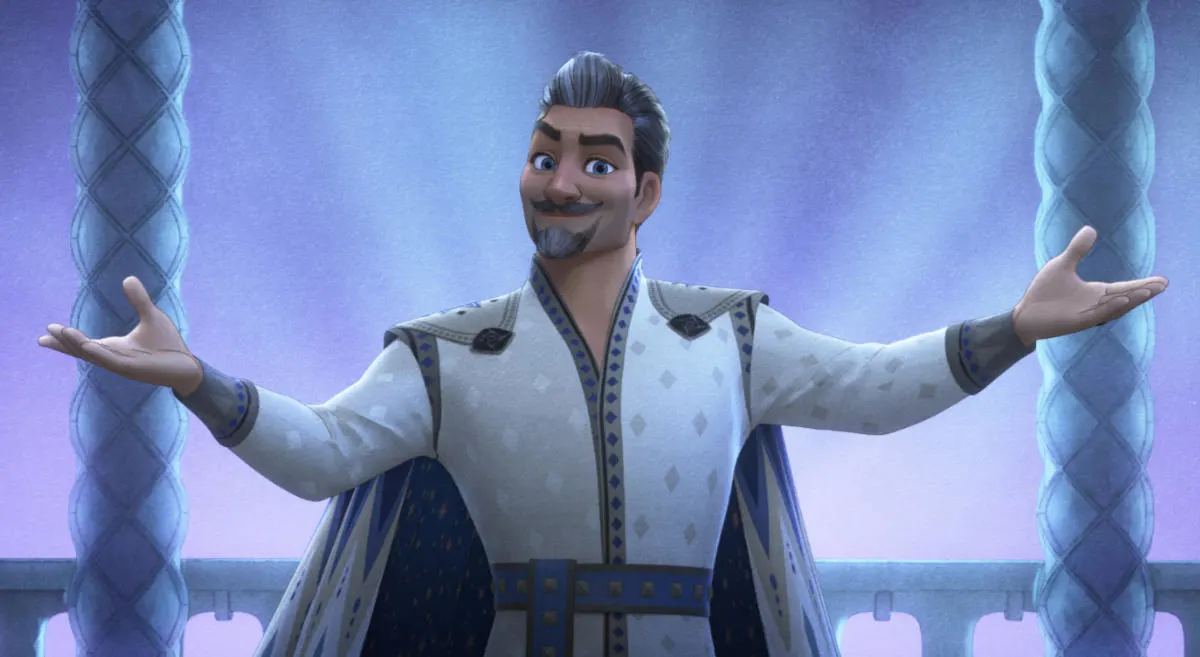
In previous conversations, Michaels and the team had lots of conversations around King Magnifico and his narcissism, which would ultimately spawn the first song Michaels wrote, “This is the Thanks I Get.” However, the character itself was constantly evolving and growing both on the page and vocally.
Vocally, the development of the character evolved when Michaels and the team discovered that actor Chris Pine can sing. It’s easy to forget that the man tackled the vocal complexities of Stephen Sondheim’s Into the Woods as Cinderella’s Prince back in 2014. For Michaels, hearing him sing “This is the Thanks I Get” with minimal difficulty meant that she could push him a little further.

“I actually had no idea that he could sing and the first one that we did for Chris Pine was ‘This is the Thanks I Get’ and we kept it in this very fun, very cool cadence,” said Michaels. “And then once I learned he could sing, I was like Oh, you’re singing ‘At All Costs.’ We are going for it. He exceeded all of my expectations.”
A character like King Magnifico could easily have been a one-sided villain. As the foil to Asha, he’s meant to represent the darker side of the motivation to help people. Sometimes help is about control. With the songs developed and the team inspired, the character turned out to be the one that changed the most in the process of development.
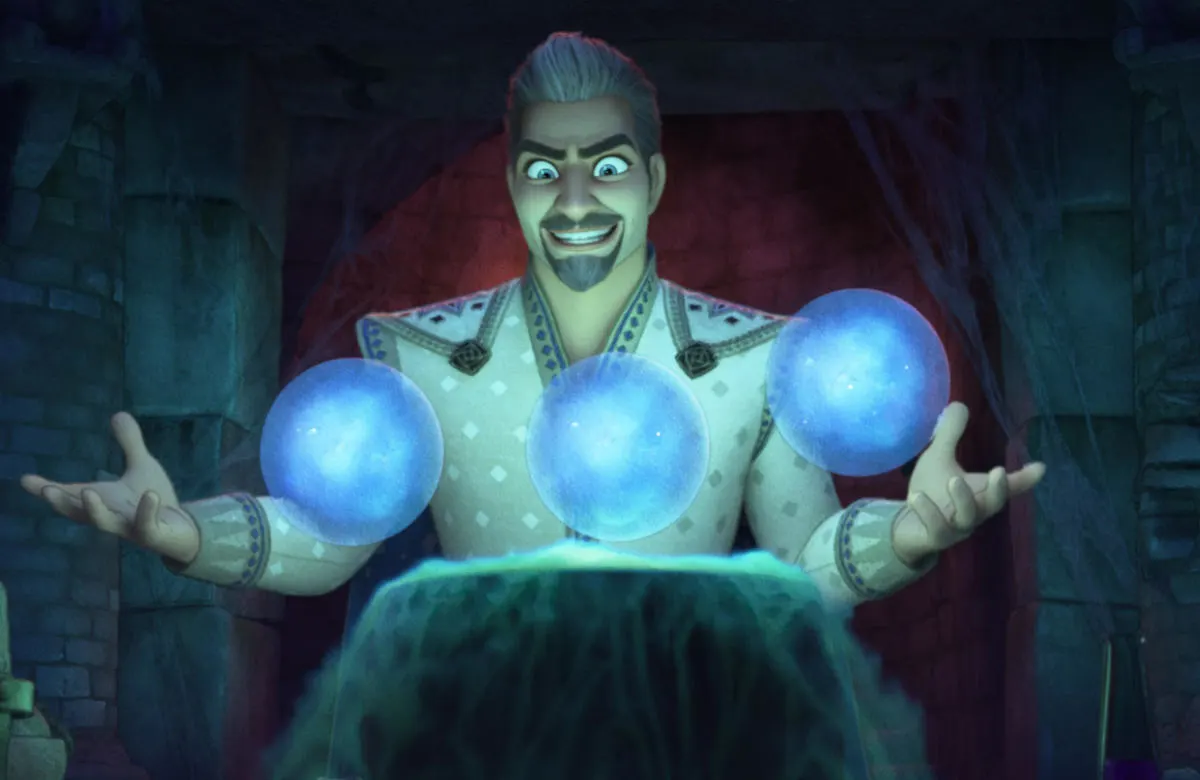
“We had a lot less of Magnifico’s full journey. Later in the game was when we opened the entire movie on him, with the book opening onto him, and that was really exciting, because people were excited about him, but also constantly wanted to go on that journey with him and understand every choice he made. And I think that’s sort of a tell as to where modern audiences are and where we are as storytellers, we were craving it,” shared Lee when diving into how much he had changed. “It was later when we started and we said, let’s let you see him at his best so you can take the entire journey with him.”
His journey and transformation impacted the way Michaels wrote the songs as well. As Chris Buck pointed out, she had written an entirely different version of his main song before arriving at the finished product. As the story evolved, so did the music.
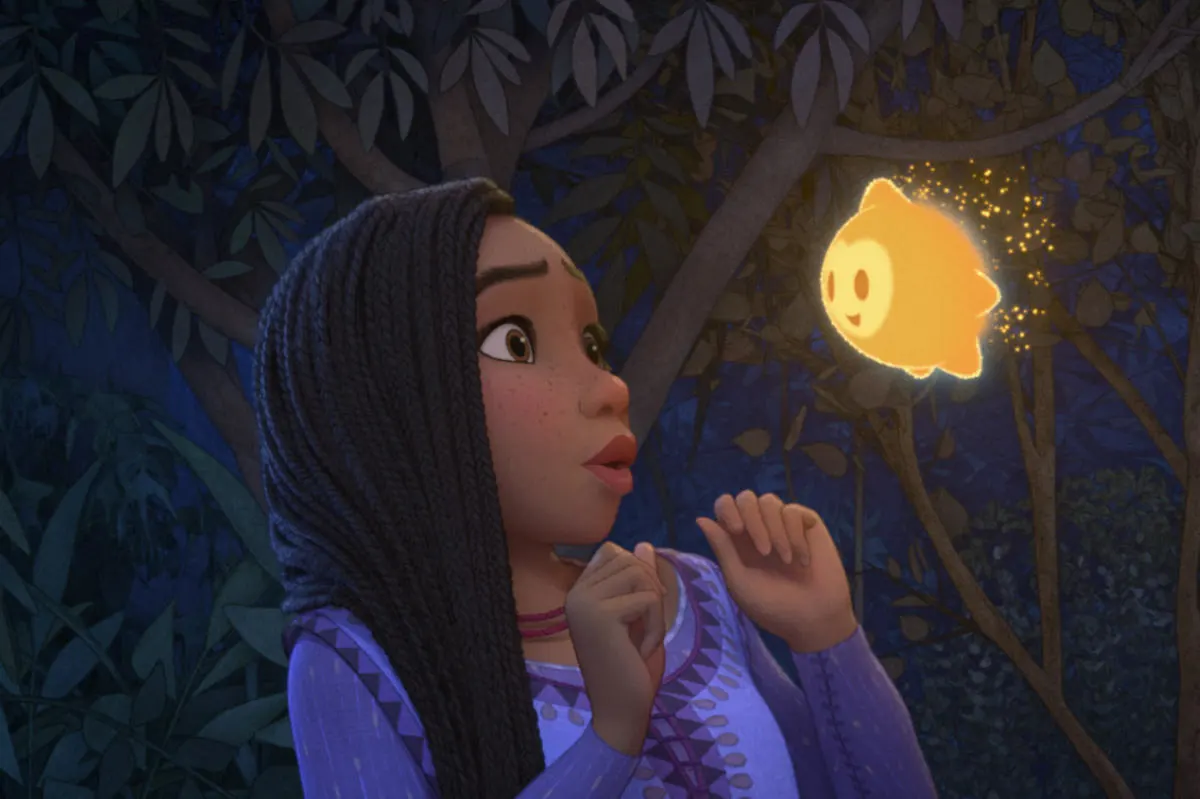
This constant state of evolution and workshopping with the story ultimately led to the creation of what is thesis or takeaway of Wish titled “You’re a Star.” The process of trying to take something as simple yet profound as your wish is yours to fulfill, not a magical cosmic entity like the Star we see in the film, was a daunting task, according to Lee. It wasn’t until she arrived at the concept that we’re all made of the same matter and material as the stars in the galaxy that the team was able to find that connective tissue required to start tackling the song.
This concept of how we are all connected led to Lee reaching out to Michaels to see what they could come up with. “We had a lot of talks about how we’re all so deeply connected, even in times you don’t feel like you are and that resonated, I think with all of us,” shared Michaels, before diving into the pressure of tackling the song.
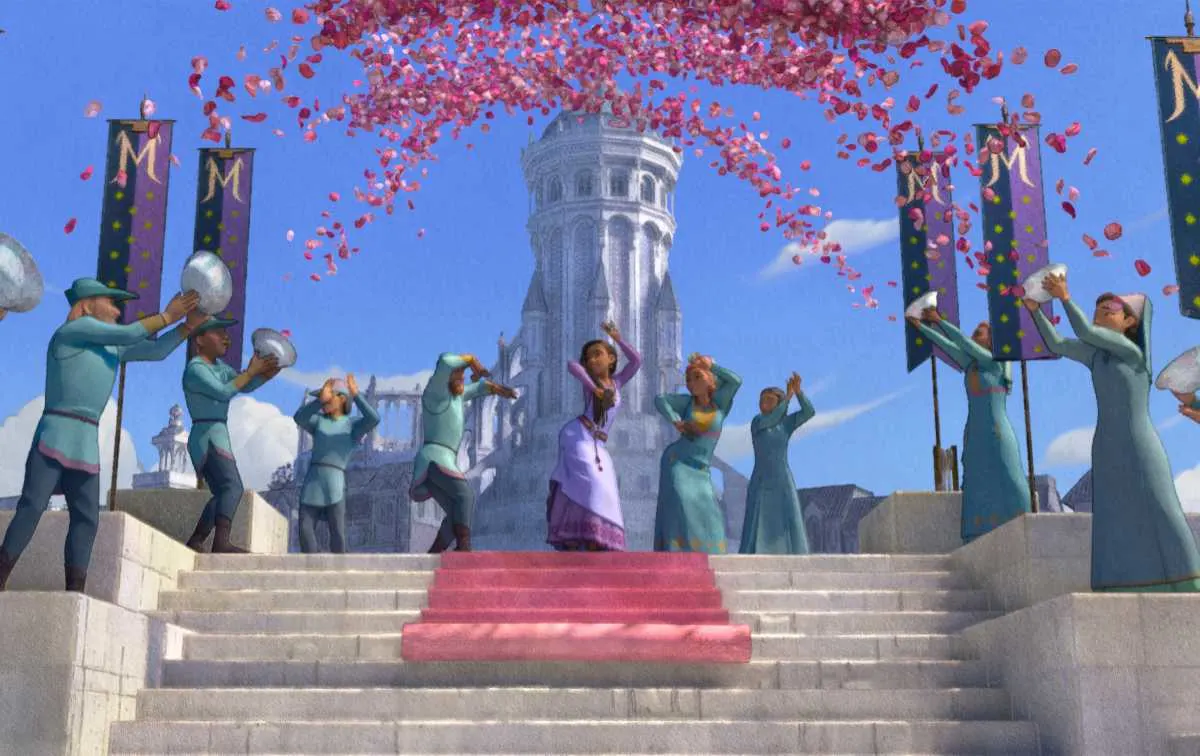
She added: “It was obviously a very, very big task for me because we had to make this song feel scientific, honest, vulnerable, and funny all in a span of three minutes, and really try to bring home the concept that we really are all made of the same things.”
Music is one of the easiest ways to communicate with audiences. Whether it’s telling us who a character is, relaying a message or theme to us through lyrics, or tapping into our emotional cores to make us connect to the scene, music has and continues to be used as an important element of Disney animated films to guide and entertain audiences.
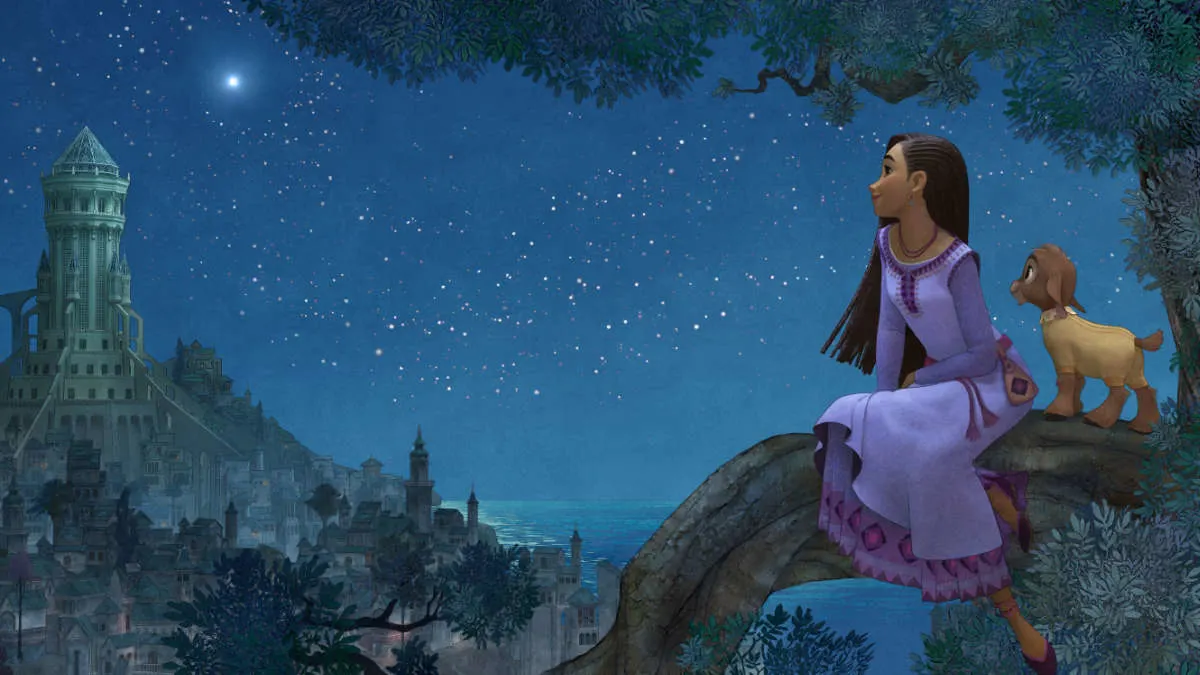
We experience all this and more in Wish. Through composer Julia Michaels’ first venture into creating a feature film’s score, audiences are transported into Asha’s world and journey alongside her as she faces the most difficult obstacles in order to return the wishes of her family and community back to them. And, before you know it, through the power of song, maybe you too will be ready to make your own wishes come true. Talking baby goat not included.
Prepare your ears and hearts for Walt Disney Animation Studios‘ Wish movie, which will release in theaters on November 22, 2023.
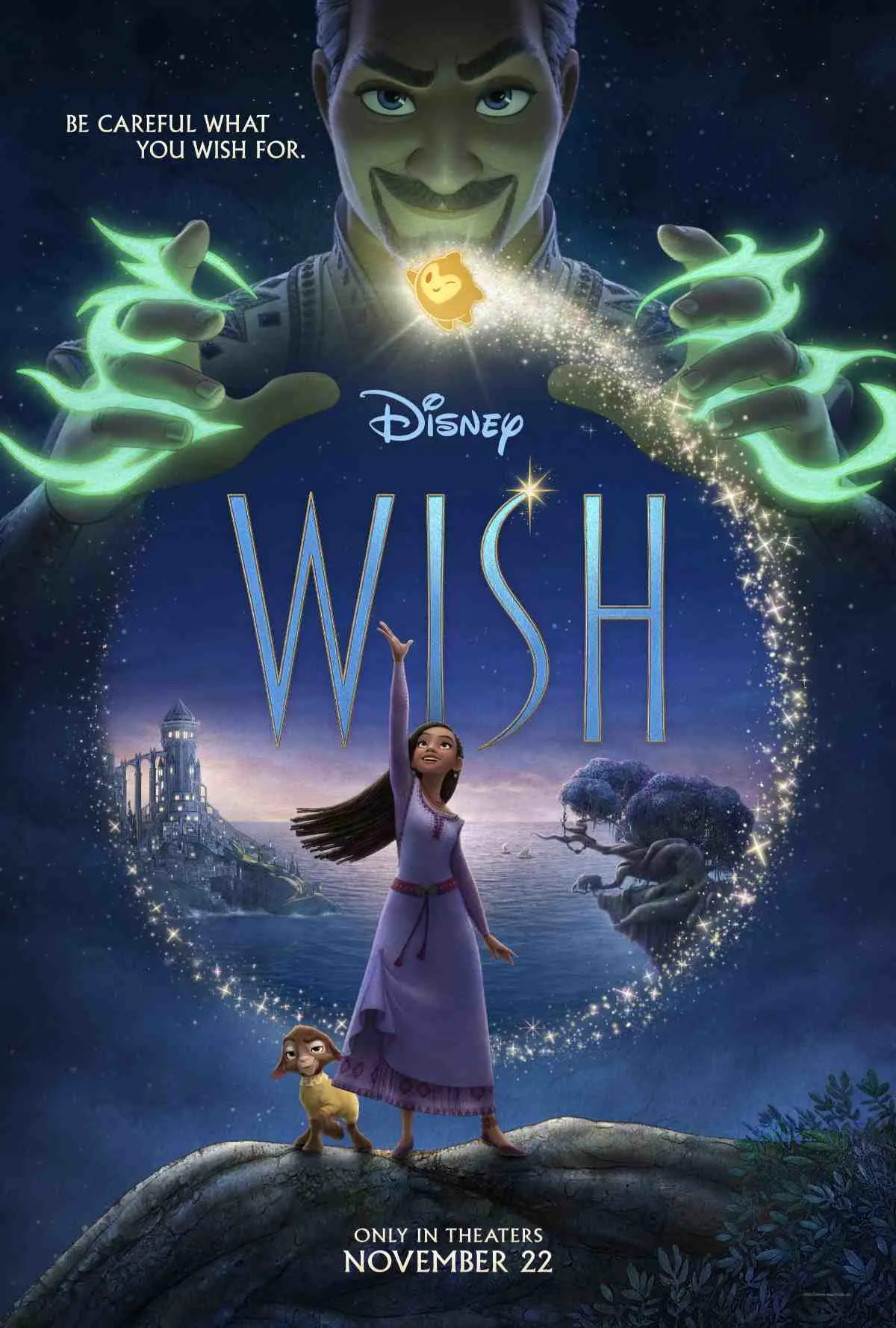

Sarah Musnicky is a freelance writer and self-described workaholic. She loves fantasy and sci-fi and will admit to having dual loyalties between Star Trek and Star Wars as well as Marvel and DC. When she’s not being socially awkward, she is in a corner obsessing over dragons, cute things, and a need to master all languages on the planet. She would like to be a professional blanket burrito when she reaches the peak of maturation.